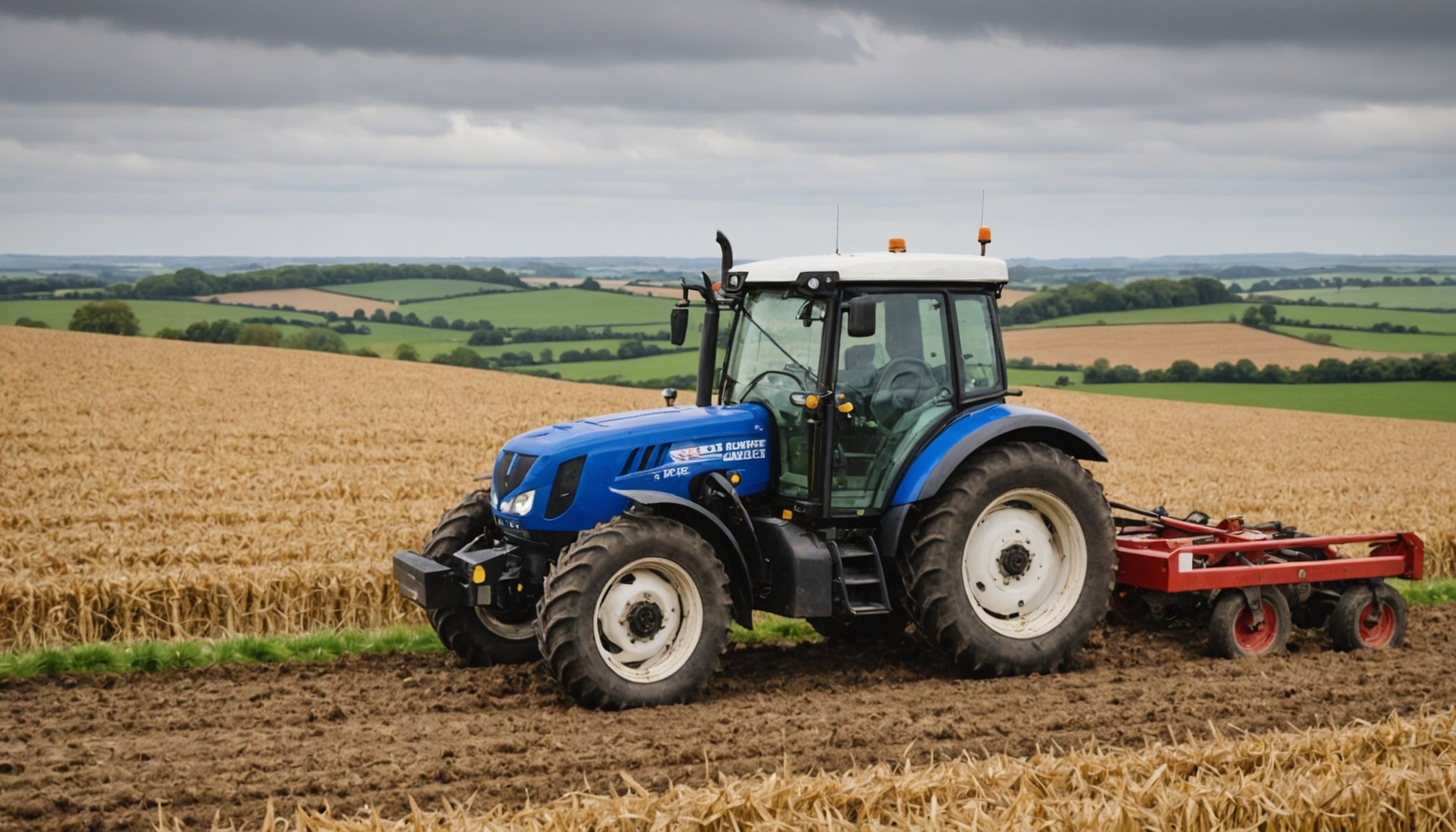Overview of Brexit’s Impact on UK Agriculture
Brexit has ushered in a transformative era for UK agriculture, significantly altering its landscape. Historically, UK agriculture benefited from EU subsidies and common policies that provided financial stability and market access. With Brexit, these frameworks have shifted, prompting concerns among farmers about the future.
Post-Brexit, the UK has introduced new agricultural policies, focusing on environmental sustainability and domestic production. These changes aim to address the Brexit impact on agriculture by crafting incentives tailored to local needs, moving away from the former EU-centric structure. While some see potential opportunities for innovation, others face uncertainty and UK farming challenges, particularly related to market volatility and trading agreements.
Have you seen this : Explore premier luxury real estate in portes du soleil
Immediate effects post-Brexit have been profound in several farming sectors. Labour shortages have become prevalent due to stricter immigration controls, impacting crop harvesting and livestock management. Additionally, trade complexities have arisen, complicating exports and imports of agricultural products. These challenges underscore the reality of navigating post-Brexit agriculture. Adaptation to new regulations continues to be a priority, as farmers seek to align with emerging standards while maintaining productivity and competitiveness.
Trade Barriers and Market Access
Trade barriers, such as tariffs and non-tariff barriers, have posed challenges for the UK’s agricultural exports to the EU. Since Brexit, these barriers have altered the export dynamics significantly. Tariffs increase the cost of exporting goods, impacting competitiveness. Non-tariff barriers, like customs checks and regulatory standards, create further delays and costs, complicating the export process.
Also to discover : Creative solutions to combat over-tourism at britain”s iconic historical attractions
Changes in export dynamics have necessitated the adaptation of UK businesses. Many have explored alternative markets or adjusted their pricing strategies to absorb additional costs. The UK-EU trade agreements play a vital role in managing these barriers, providing frameworks for smoother cross-border trade.
The importance of forming new trade agreements outside the EU has been highlighted by these challenges. These agreements open up markets with fewer restrictions and offer the potential for increased agricultural exports. By doing so, UK producers can reduce their reliance on the EU and tap into growing global markets. This strategic move not only diversifies export destinations but also strengthens the UK’s trade portfolio, promoting long-term economic stability. Trade agreements with key international partners can thus offset some of the impacts of EU trade barriers and enhance market access.
Labor Shortages in Agriculture
The agricultural sector is grappling with labor shortages, intensified by the UK’s shifting immigration policy post-Brexit. Historically, the industry relied on seasonal labor, primarily from European countries, to meet its workforce demands. The shift in immigration laws has disrupted this flow, leaving many farmers struggling to find adequate help.
With the departure of a steady stream of seasonal workers, the agricultural workforce faces substantial challenges. Farmers report difficulty in filling positions, leading to delayed harvests and unpicked crops. The broad impacts include increased operational costs and potential losses, underscored by an already competitive market environment.
To mitigate these issues, the sector is exploring potential solutions. Strategies include promoting agricultural careers domestically to attract new employees. Additionally, increased mechanisation and the use of technology can offer avenues to partially offset the need for manual labor. Adjusting immigration policy to allow more flexibility in labor sourcing may also relieve some of the pressure on farmers, facilitating a smoother adaptation to the current labor market dynamics. By exploring these approaches, the agricultural industry aims to ensure stability and productivity despite these ongoing challenges.
Policy Changes Affecting Farmers
Post-Brexit agricultural policy changes have introduced significant shifts in the UK, primarily due to the replacement of the Common Agricultural Policy (CAP). This move aims to establish a more tailored approach that better aligns with national interests and environmental goals. The shift marks a transition from blanket subsidies under CAP to a new model that emphasizes sustainability and productivity.
The implications of the CAP replacement are considerable for UK farmers. A focus is placed on environmental land management schemes, incentivizing practices that promote biodiversity and sustainability. The aim is both to reward farmers who adopt eco-friendly practices and to ensure agricultural productivity remains robust.
New farm subsidies reflect this change. They’re structured to support innovation in farming, encouraging the adoption of smart technologies and climate-resilient practices. This shift is designed to not only support the livelihoods of farmers but also to meet broader environmental objectives.
For farmers navigating these changes, understanding this framework is crucial in leveraging the support available. While these changes require adaptation, they present opportunities for long-term sustainability and resilience in the agricultural sector.
Innovative Strategies and Opportunities
In the evolving landscape of UK agriculture, technological advancements are paving the way for transformative change, especially in the post-Brexit era. These innovations introduce new practices that enhance efficiency and productivity, offering substantial growth opportunities for farmers. One significant aspect of this transformation is the integration of precision farming. Technologies such as drones and AI-driven analytics help optimise resource use, ensuring more informed decision-making.
Sustainable farming plays a crucial role in shaping the future of agriculture. As environmental concerns mount, embracing practices that reduce carbon footprints and promote biodiversity is becoming essential. Crop rotation, no-till farming, and organic inputs are just a few methods that contribute to a more eco-friendly approach, aligning well with global sustainability goals.
Exciting case studies highlight the success stories of farms adopting innovative strategies. For instance, a farm in Devon has reported improved yields and reduced waste through the use of sensor technology to monitor soil health. Another in Yorkshire has successfully implemented agroforestry, which not only enhances biodiversity but also provides additional income streams. These examples showcase the potential for growth and prosperity when innovation meets sustainability in agriculture.
Expert Opinions and Case Studies
Understanding the long-term effects of Brexit on agriculture requires a deep dive into expert analysis and the experiences of those directly impacted. Agricultural experts highlight that Brexit has introduced both challenges and opportunities for the farming sector, influencing everything from trade relations to local farming adaptations.
For instance, in certain agricultural case studies, some farmers have adapted by diversifying crops to meet new market demands, successfully transforming these challenges into profitable opportunities. One such success story involves farmers in Kent who shifted focus from traditional crops to more exotic varieties, finding new markets and increasing profits.
Meanwhile, insights from stakeholders reveal a mixed outlook. Many farmers express concern over tariff changes and migrant labour shortages, leading to operational adjustments to maintain productivity. However, others see Brexit as a chance to foster stronger domestic supply chains and enhance local farming resilience.
These perspectives indicate a complex landscape where careful expert analysis and strategic planning are essential for navigating the post-Brexit agricultural terrain. Case studies continue to demonstrate that, while facing numerous hurdles, innovation and adaptability can lead to significant advancement in farming practices.
Practical Advice for Stakeholders
In the complex landscape of evolving agricultural policies, stakeholder strategies are crucial for navigating the challenges presented by Brexit. For farmers, leveraging available farmer resources can be pivotal in ensuring sustainable practices and profitability. These resources include government grants, agricultural extension services, and access to modern farming technologies.
Navigating Brexit challenges requires strategic risk management and an eye for emerging opportunities. Stakeholders must stay informed about regulatory changes and market access conditions. Engaging in continuous education, such as attending workshops and seminars focused on Brexit’s impact on agriculture, can provide valuable insights.
Collaboration within the agricultural community can amplify these efforts. By fostering partnerships between farmers, agribusinesses, and policy-makers, stakeholders can enhance resource-sharing and innovation. Networking through farmer cooperatives or associations can facilitate knowledge exchange and joint ventures, leading to resilient farming practices.
Additionally, adopting technology-driven farming solutions can address specific Brexit-induced issues, such as labour shortages or trade barriers, thereby further strengthening stakeholder strategies.






